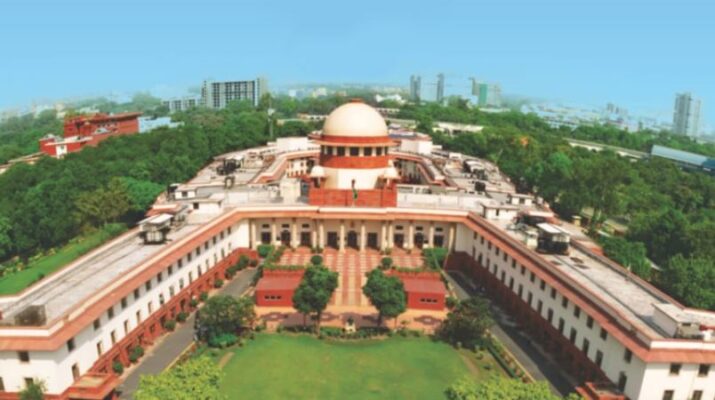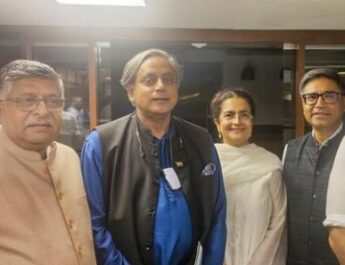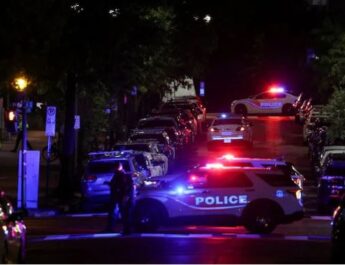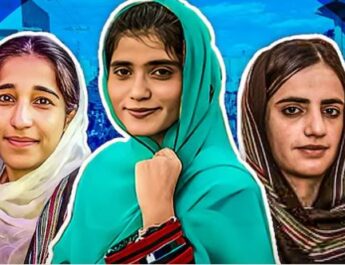Centre’s decision abrogating Article 370 in Jammu & Kashmir ‘valid’
Article 370 Verdict: The Central Government will not rescind its decision to remove Article 370 from Jammu and Kashmir. On Monday, the five-judge Supreme Court Constitution bench declared that Article 370 was merely a provision. Articles 370 and 1 of the Constitution make it abundantly evident that Jammu and Kashmir is an essential component of India. There, the Indian Constitution’s whole provisions are applicable. On August 5, 2019, the Center removed Article 370 from Jammu and Kashmir. Four years, four months, and six days later, the court rendered a decision in which it stated, “We consider the President’s order issued to abrogate Article 370 as valid.”
We also maintain the validity of the decision to make Ladakh a Union Territory. Along with this, the Supreme Court ordered to hold assembly elections in the state by 30 September 2024.
Center removed Article 370 on August 5, 2019, 23 petitions against it
On August 5, 2019, the Modi administration, now in its second term, abolished Article 370. The state was split into Jammu-Kashmir and Ladakh as well. The Supreme Court received 23 petitions in opposition to this. Every petition was heard collectively by a bench of five judges.
Chief Justice DY Chandrachud, Justice BR Gavai, Justice Surya Kant, Justice Sanjay Kishan Kaul, and Justice Sanjiv Khanna were among the judges on the Constitution bench. The 16 days of nonstop hearing before the bench came to an end on September 5. The Supreme Court postponed deciding this. Following 96 days of deliberation, the Supreme Court rendered a decision on the matter.
Chief Justice said that every decision of the Center cannot be challenged in the court.
CJI said that every decision taken by the Center cannot be challenged in the court. Doing this will spread anarchy. If the Centre’s decision is creating any kind of difficulty, then only it can be challenged. The Supreme Court rejected the argument of the petitioners that during the President’s rule, the Center cannot take any decision which cannot be changed.
In addition, the Chief Justice stated that it would be incorrect to claim that the Center can only enact laws through the Parliament following Article 356. According to CJI, three judges’ opinions are included in the decision. Chief Justice Gavai and Justice Surya Kant have made one decision. Justice Kaul’s decision is the second one. Justice Khanna concurs with the two rulings.
Courtroom Updates: The Supreme Court’s Constitution bench made this decision unanimously. Chief Justice Chandrachud was the only one to read the verdict, though.
CJI stated…
- Since no one challenged the validity of the Presidential Proclamation, we are not debating its validity.
- It is impossible to dispute any decision made by the Center while it was led by the President.
- Unlike other states in the nation, Jammu and Kashmir lacks internal sovereignty.
- Although Article 370 of the Constitution was only meant to be temporary, the President is still able to revoke it. Because of the war situation in Jammu and Kashmir, it was brought in temporarily.
- It was never the intention of the Jammu and Kashmir Constituent Assembly to become an everlasting institution. Article 370 was put into effect because of a special condition that vanished along with the Constituent Assembly of Jammu and Kashmir.
The President of India was not required to follow the recommendation of the Jammu and Kashmir Constituent Assembly.
Since the petitioners did not contest the Presidential Proclamation in Jammu and Kashmir, the Supreme Court is not required to rule on its validity. - According to the Chief Justice, Jammu and Kashmir loses its sovereignty when it becomes a part of India.
Which side was supported by whom?
Attorney General R Venkataramani, Solicitor General Tushar Mehta, and senior attorneys Harish Salve, Rakesh Dwivedi, and V Giri speak on behalf of the government.
On behalf of the petitioners- Kapil Sibal, Gopal Subramaniam, Rajeev Dhawan, Zafar Shah, and Dushyant Dave.




